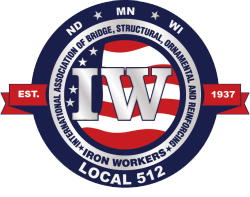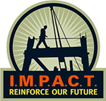The end-of-year holidays in America generally mean celebration, time spent with family and loved ones, and a bright mood. Holiday cheer. Merry. Happy. For most people, they are. But there is also a less cheerful side that we want to focus on: mental health struggles, especially those that lead to suicide. It’s not a happy topic, but it’s a necessary one, especially for Ironworkers.
Suicide is a leading cause of death among working-age adults in the United States, where we have one of the highest suicide rates among wealthy nations on the planet. Per the CDC, in 2020 there were 45,799 recorded suicides. As Ironworkers, we are always concerned about jobsite safety, and approximately 1,000 construction workers die each year from jobsite incidents. But an estimated 5,200 construction workers die each year by suicide. Even more concerning for us, among the construction trades, Ironworkers have one of the highest risks of suicide. At a very personal and local level, Ironworkers Local #512 has seen a number of suicides among our membership over the last eight years.
There are a lot of factors that can cause or influence suicidal ideation, but according to the Mayo Clinic, broadly speaking, it’s “The result of feeling like you can’t cope when you’re faced with what seems to be an overwhelming life situation.” All of which is clearly connected to mental health. As Ironworkers, we face the same challenges as all working people: pressures from the job, fear of layoff, family challenges, etc. But we also add in long drives to and from work, the pure physical toll and pain our work can cause, and even just the working conditions common to Minnesota: extreme heat or cold. Then there are complicating factors caused by addiction or drug and alcohol abuse. While this is something that can happen to anyone, it has sadly been a common factor in many of the suicides of our brothers and sisters.
When things are going badly—work, a specific job, personal life, just life in general—a common response from Ironworkers is to suck it up and power through. This applies to both physical and mental illness, but even more to mental illness, because it’s not as easy to see as, say, a broken leg. Part of that is probably perception: Ironworkers are seen by other trades as the tough guys, and it can be very hard for tough guys to ask for help. (To be clear, “tough guys” refers to all Ironworkers—they’re all tough guys, whether they’re “guys” or not.) But it’s a terrible stigma that one kind of injury—that broken leg—is easily understood to require treatment, and another kind—mental health struggles—so easily get the “suck it up” treatment.
There are things we can do to help fix this disparity, both as individual Ironworkers and as a union (and some things we are already doing). One of the first is that we can all work to overcome our own stigma about mental health. Don’t think of it as something that’s all in your (or someone else’s) mind. It’s as real as that broken leg and should be treated just as seriously. We can also normalize talking about mental health whether it’s good or bad. If you see someone who seems like they need help, or is exhibiting changes in mood, behavior, or what they say, you can always ask “Are you okay?” Sometimes all it takes is one person reaching out. Even being as direct as asking “Are you thinking about suicide?” can give a struggling person some relief. They know they have someone who cares about them, that they are not alone.
As a union, the Ironworkers offer support through Total Employee Assistance Management, or TEAM, an Employee Assistance Program based in Minnesota but serving several states in the Midwest. They offer a wide range of support for just about anything Ironworkers need help with. They can be reached at www.startwithteam.com or by phone at 800-634-7710. The Ironworker Management Progressive Action Cooperative Trust, or IMPACT, is another good resource. They offer a full page of suicide prevention resources available to Ironworkers. They can be found at www.impact-net.org or called at 202-393-1147.
And of course, there’s always the national 988 Suicide and Crisis Lifeline. It can be reached by dialing or texting 988. People reaching out to this number will be routed to their nearest crisis center to receive immediate counseling and information about local mental health referrals. This call can be made by people calling for themselves or on behalf of someone they care about.
If you or someone you care about is struggling with mental health or suicidal ideation, there are people and resources who can help. As Ironworkers, we work and stand together. Part of that is being there for our brothers and sisters, to give them help when they need it.








